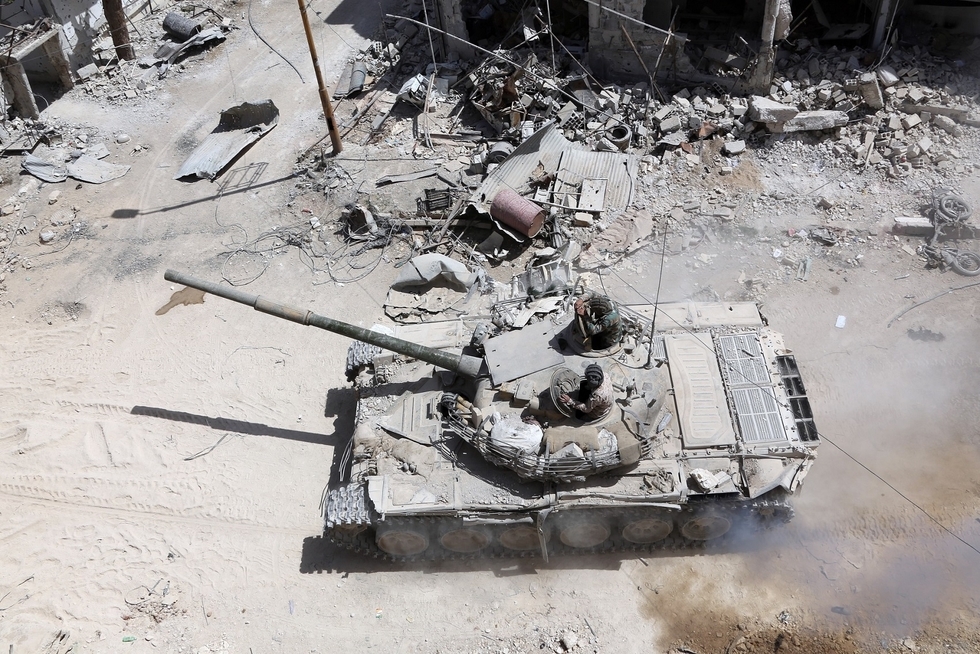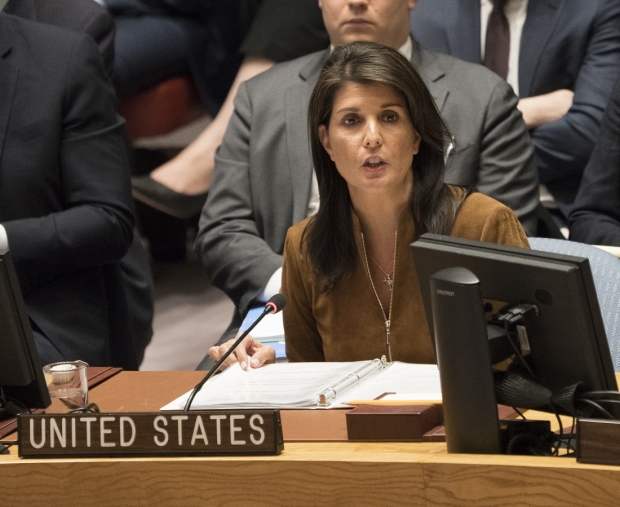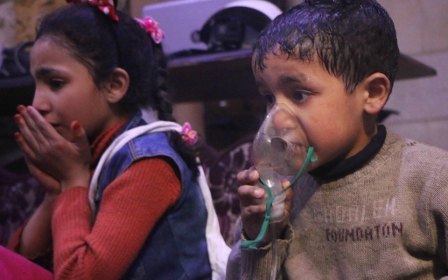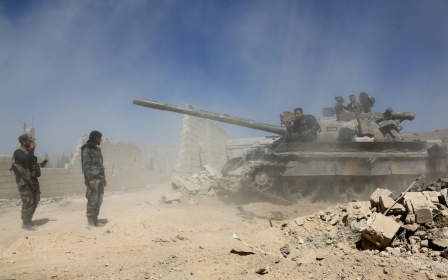Russia calls US proposal for Syria gas probe 'unacceptable'

Russia rejected a new US proposal at the United Nations on Monday to set up an investigation to identify the perpetrators of chemical weapons attacks in Syria.
The United States put forward a draft resolution to the Security Council following alleged toxic gas use in the rebel-held town of Douma that killed at least 40 people.
The US push for a new inquiry came amid heightened tensions over possible US military action in Syria, with President Donald Trump saying that "major decisions" would be taken within 48 hours.
Russian Ambassador Vassily Nebenzia said the US-drafted measure "contains some unacceptable elements, which make it worse" than a previous proposal put forward by Washington in March.
"From what we hear now, I am afraid they are looking for a military option, which is very, very dangerous," he told reporters following an emergency council meeting.
Nebenzia urged investigators from the Organisation for the Prohibition of Chemical Weapons (OPCW) - the global chemical weapons watchdog - to fly to Syria as early as Tuesday to look into accusations about the attack, offering them protection by Syrian authorities and Russian troops.
We have a lot of options militarily and we'll be letting you know pretty soon.
- US President Donald Trump
"The Syrian authorities and Russian troops will provide conditions to travel to the areas of the alleged incident for them to familiarise themselves with the situation," he said.
The OPCW said it had opened an investigation to determine what exactly had happened in Douma.
Trump - who last year ordered a missile strike on a Syrian air base after sarin was used in the town of Khan Sheikhun - warned that there would be a "big price to pay".
The US leader met with his cabinet and then dined with top generals on Monday afternoon, telling reporters: "We have a lot of options militarily and we'll be letting you know pretty soon ... probably after the fact."
Rescuers and medics in Douma say more than 40 people died after a "poisonous chlorine gas attack" late Saturday in the last rebel-held pocket of Eastern Ghouta.
At the council meeting, Nebenzia warned that a US military strike against Syria could have "grave repercussions" and stressed that the use of chlorine or sarin had not been confirmed in the attack.
"History will record this as the moment when the Security Council either discharged its duty or demonstrated its utter and complete failure to protect the people of Syria," she added.
"Either way, the United States will respond."
The Russian ambassador said Moscow had told the United States that it would not allow its forces on the ground in Syria to be put at risk.
"Armed force under mendacious pretext against Syria, where, at the request of the legitimate government of a country, Russian troops have been deployed, could lead to grave repercussions," Nebenzia said.
Moscow and Damascus have fiercely denied that chemical weapons were used in Syria.
Haley wants the Security Council to vote on the US draft resolution on Tuesday.
A draft resolution requires nine votes to be adopted and no vetoes from the five permanent members - Britain, China, France, Russia and the United States.
"The US resolution is pretty obviously a bait for the Russians, who will have no choice but to veto it," Richard Gowan, a UN expert from the European Council on Foreign Relations, told AFP.
"That will give the US and possibly France an excuse for military action."
The renewed US push to establish the United Nations Independent Mechanism of Investigation comes after Russia killed off a previous UN-led probe in November by vetoing the renewal of its mandate.
Under the current draft resolution, UNIMI would be established for one year and work with the OPCW to identify perpetrators of chemical attacks.
The council would ask UN Secretary-General Antonio Guterres to outline within 30 days the operation of the panel "based on the principles of impartiality, independence and professionalism," according to the draft text obtained by AFP.
Russia has repeatedly used its veto power in the Security Council to shield the Syrian government from UN action.
Washington is weighing a multinational response against the Syrian government, Reuters news agency reported late on Monday, citing administration officials.
In a telephone call, French President Emmanuel Macron and Trump said they wanted a "firm response" to the alleged chemical attack in Douma, according to the Elysee Palace.
In their second discussion in two days about Saturday's suspected chemical attack, the two leaders "reiterated their desire for a firm response from the international community to these new violations of the chemical weapons ban," the French president's office said.
On Monday, acting US Secretary of State John Sullivan also spoke by phone twice with UK Foreign Secretary Boris Johnson.
"The two leaders discussed the international community’s response and potential further steps the US and UK governments might take in coordination with other partners," the State Department said in a statement.
New MEE newsletter: Jerusalem Dispatch
Sign up to get the latest insights and analysis on Israel-Palestine, alongside Turkey Unpacked and other MEE newsletters
Middle East Eye delivers independent and unrivalled coverage and analysis of the Middle East, North Africa and beyond. To learn more about republishing this content and the associated fees, please fill out this form. More about MEE can be found here.





